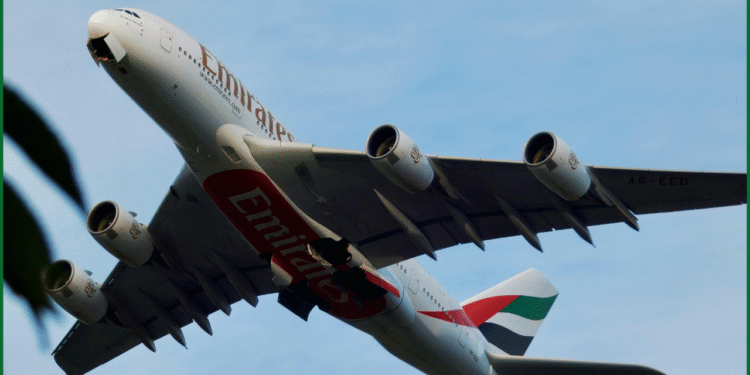UAE-based carriers, including Emirates, Etihad, flydubai, and Air Arabia, have cautiously restarted flight operations to Pakistan following the Pakistan Airport Authority’s (PAA) announcement of fully restored national airspace on Sunday. The resumption comes after a period of heightened regional security concerns, with airlines emphasizing that schedules remain subject to ongoing developments.UAE-based carriers, including Emirates, Etihad, flydubai, and Air Arabia, have cautiously restarted flight operations to Pakistan following the Pakistan Airport Authority’s (PAA) announcement of fully restored national airspace on Sunday. The resumption comes after a period of heightened regional security concerns, with airlines emphasizing that schedules remain subject to ongoing developments.
The PAA issued a new Notice to Airmen (NOTAM), confirming that all Pakistani airports are now open for regular operations. “We are working to ensure smooth operations across all our airports,” a PAA representative stated, advising travelers to verify flight details with their airlines due to potential delays as services stabilize. The authority noted that some aircraft and ground equipment, moved to secure locations during recent tensions, are still being repositioned, which may slow the return to normalcy.
UAE Airports Ramp Up Pakistan Services
Major UAE airports have begun reactivating routes to Pakistan. Dubai International Airport has resumed flights to Karachi, Lahore, Sialkot, Peshawar, and Islamabad, with the first Islamabad-bound flight set for May 12 and Peshawar services starting May 13. Abu Dhabi’s airport has reinstated connections to Islamabad, Karachi, and Lahore, though some flights have faced rescheduling. Sharjah Airport, a hub for Air Arabia, has also restored its Pakistan routes, with operations proceeding as planned.
UAE airlines are adopting a phased approach to resuming services. Emirates and Etihad have confirmed plans to gradually scale up flights to major Pakistani cities, while low-cost carriers flydubai and Air Arabia are prioritizing high-demand routes. Passengers are urged to check flight statuses directly with airlines or airport help desks to avoid disruptions.
Persistent Challenges in Pakistan
Despite the reopening of airspace, significant disruptions persisted on Sunday. Data from Pakistan’s aviation sector revealed that 45 flights from Karachi (39 international), 38 from Lahore (32 international), 40 from Islamabad (36 international), 11 from Peshawar, 10 from Multan, and 6 from Sialkot were canceled. These cancellations reflect the logistical hurdles airlines face as they reposition resources and adjust to the evolving situation.
India-UAE Flights Face Ongoing Disruptions
In contrast, air travel between the UAE and India remains heavily impacted. On May 10, India’s aviation authorities issued NOTAMs announcing the temporary closure of 32 airports in northern and western regions, including Amritsar, Srinagar, Jammu, Chandigarh, and Leh. The closures, effective from May 9 to May 15, were attributed to unspecified “operational constraints.” As a result, many flights have been diverted to Delhi and Mumbai, causing widespread delays and passenger frustration.
No further updates have been provided by Indian authorities, leaving travelers and airlines in a state of uncertainty. The disruptions have particularly affected UAE-based carriers, which operate numerous daily flights to India, a key market for both business and leisure travel.
Looking Ahead
As UAE airlines work to restore full connectivity with Pakistan, the situation underscores the fragility of regional air travel amid geopolitical tensions. Travelers are advised to stay informed through airline updates and official airport channels. Meanwhile, the prolonged closure of Indian airports continues to challenge the aviation industry, with ripple effects felt across the Gulf and beyond.

















































